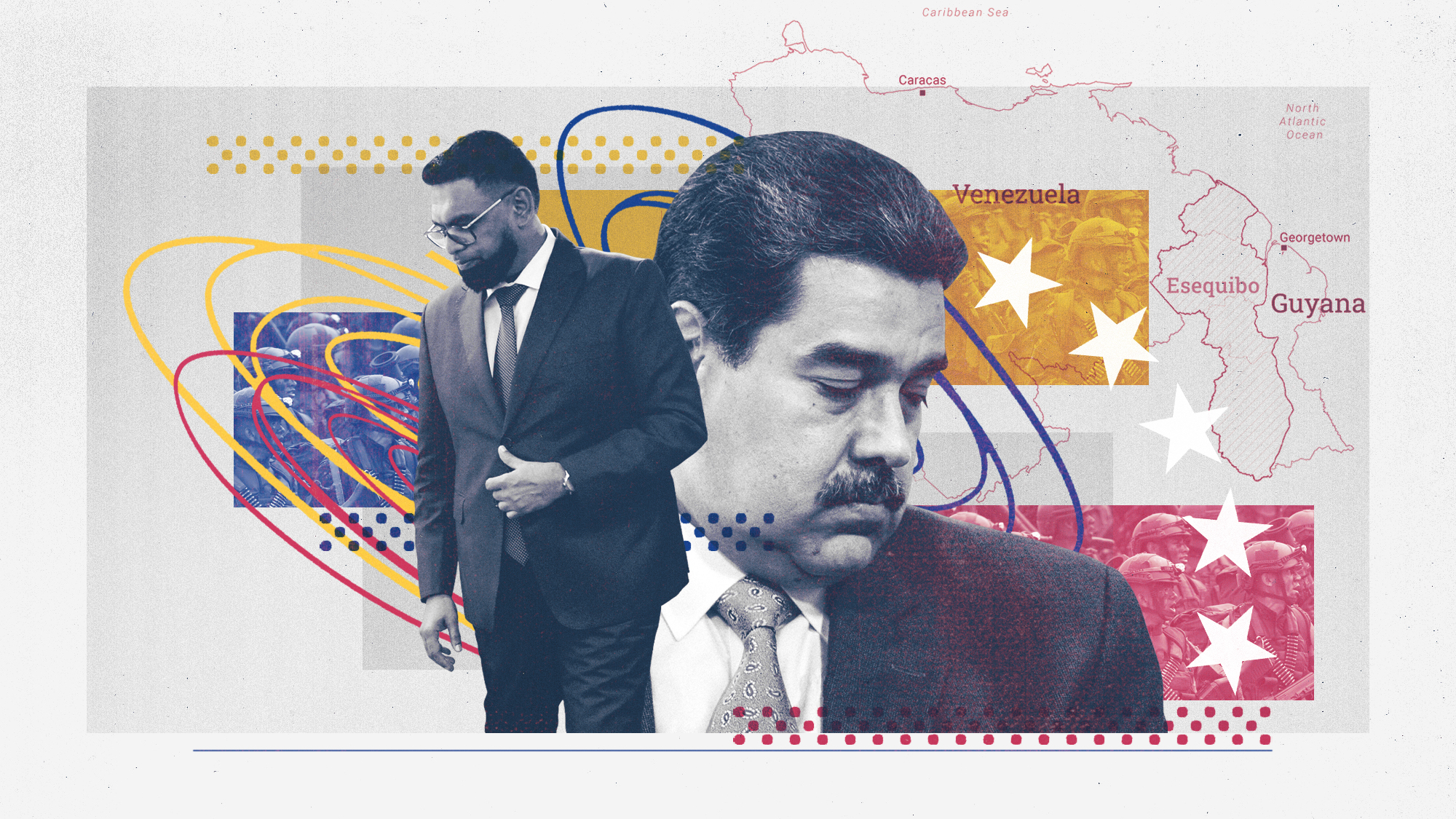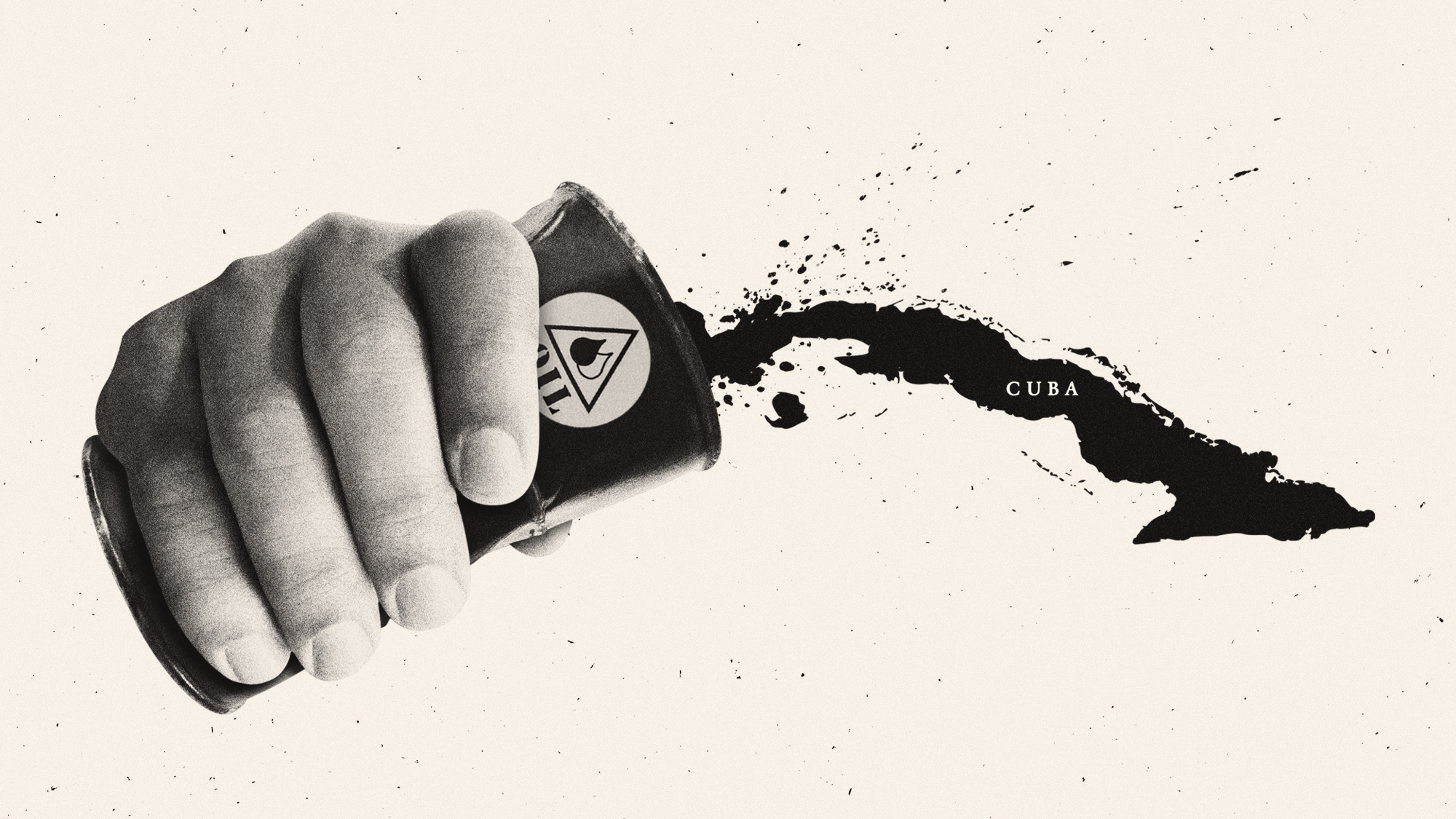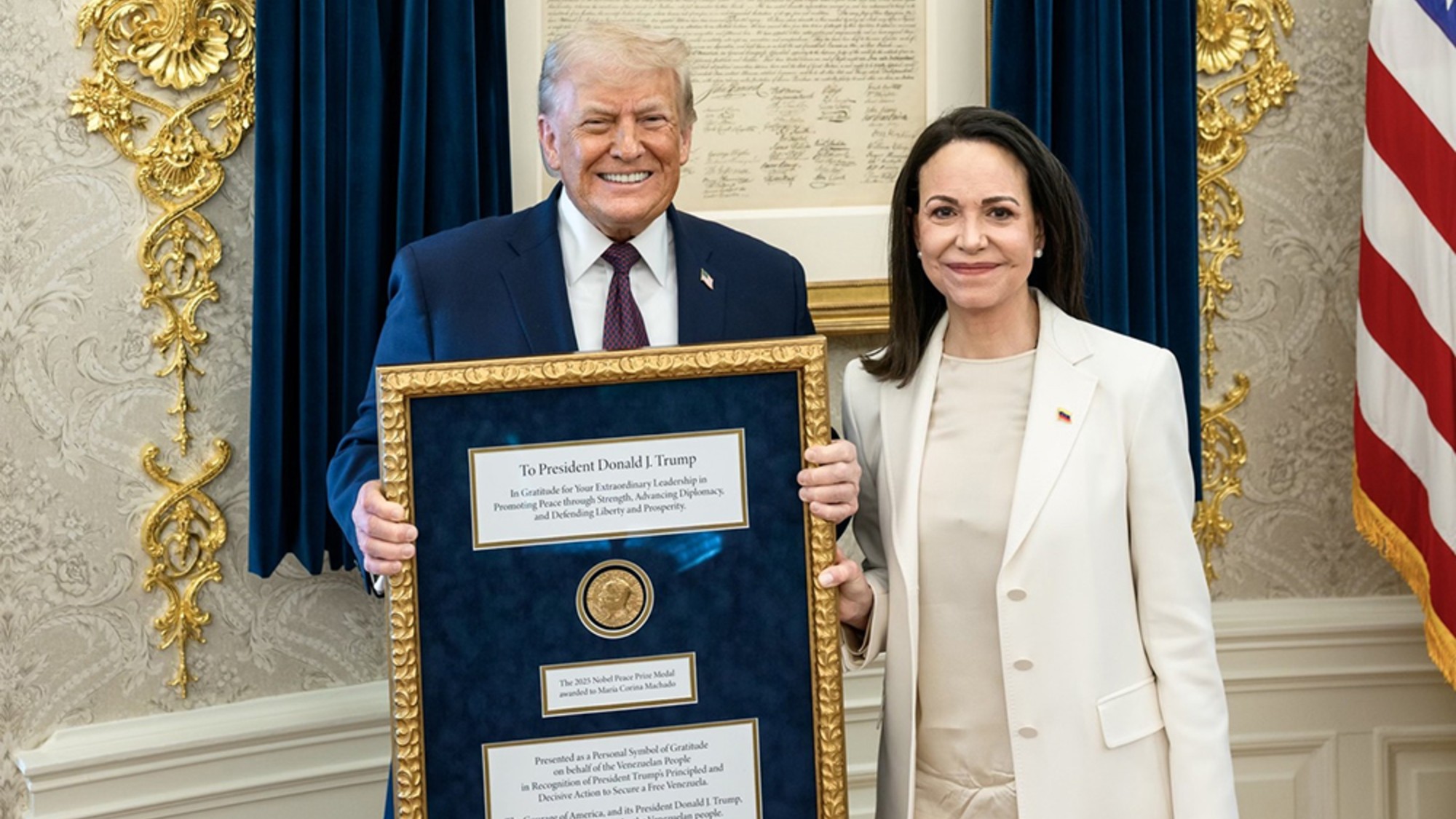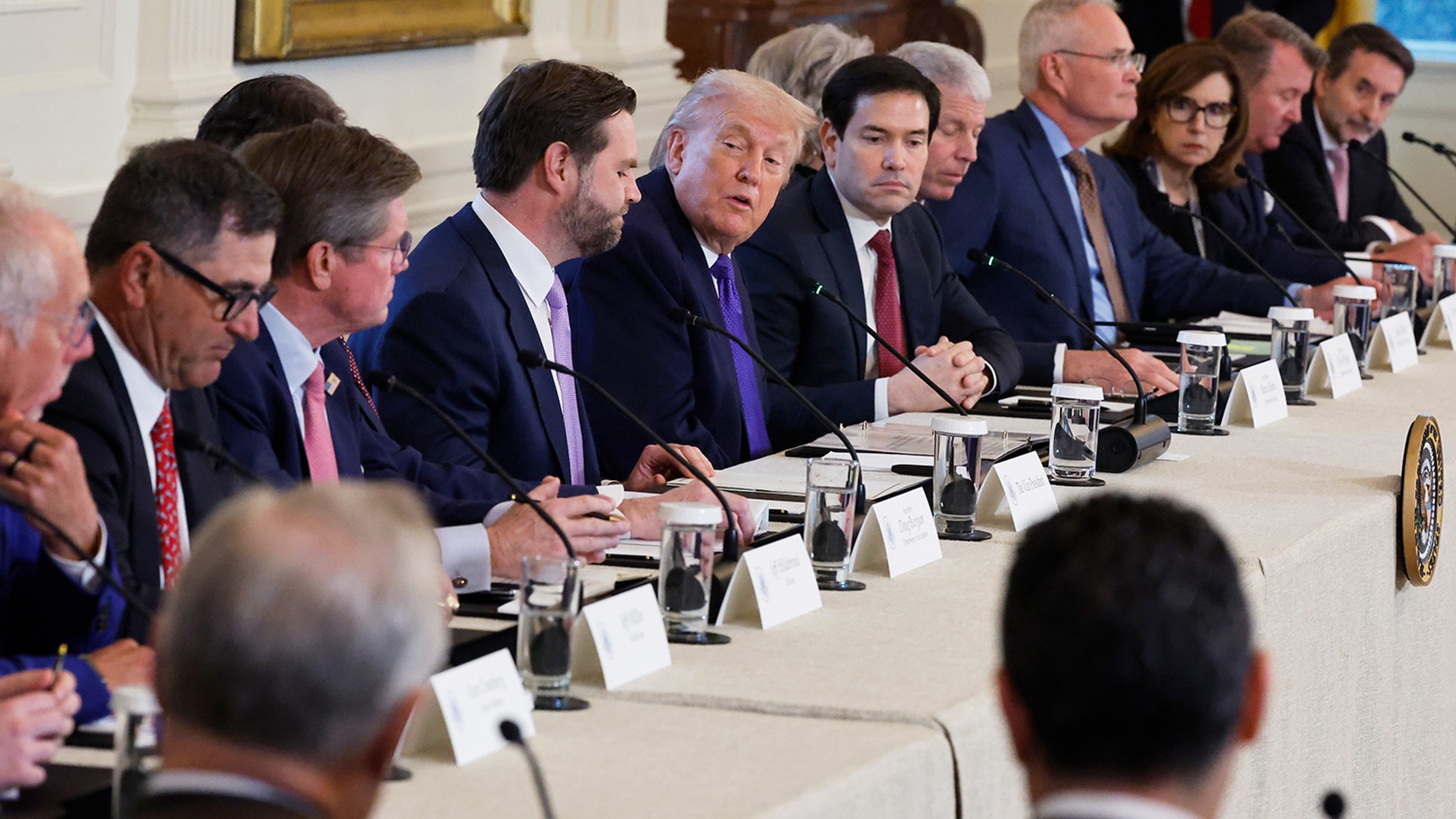Is Venezuela about to start a war in Latin America?
A dispute over Guyana's oil-rich territory could turn violent. Or it might sway a presidential election.


A free daily email with the biggest news stories of the day – and the best features from TheWeek.com
You are now subscribed
Your newsletter sign-up was successful
Is a threat by Venezuelan leader Nicolas Maduro to annex Guyana's oil fields a prelude to war in Latin America? Or is the strongman merely trying to rally his own nation ahead of a presidential election next year? No one really knows for sure, The Miami Herald reports, but American officials are "increasingly concerned over how far Nicolas Maduro may be willing to go."
Maduro's claim over the Essequibo region of Guyana "would give Caracas a claim to offshore oil riches that Guyana recently found and that Venezuela clearly covets," Alexandra Sharp explained at Foreign Policy. A weekend referendum in Venezuela supposedly received the backing of 95 percent of voters in favor of annexation, though it's important to note the government this week also ordered the mass arrest of annexation opponents. Maduro's aim in all of this is to "give him a claim to big oil, bolster support for his United Socialist Party, and pigeonhole the opposition into appearing anti-patriotic."
It's a threat that leaders across the Western Hemisphere are taking seriously. Irfaan Ali, president of Guyana, told The Associated Press his country is preparing to defend itself. "We take this threat very seriously, and we have initiated a number of precautionary measures to ensure the peace and stability of this region," he said. And the U.S. is weighing in: Secretary of State Antony Blinken called Ali to offer America's "unwavering support for Guyana's sovereignty."
The Week
Escape your echo chamber. Get the facts behind the news, plus analysis from multiple perspectives.

Sign up for The Week's Free Newsletters
From our morning news briefing to a weekly Good News Newsletter, get the best of The Week delivered directly to your inbox.
From our morning news briefing to a weekly Good News Newsletter, get the best of The Week delivered directly to your inbox.
What the commentators said
"The norm that borders cannot be changed through military force now faces its first major test in this hemisphere in generations," Ben Rowswell, who previously served as Canada's ambassador to Venezuela argued in The Globe and Mail. But Maduro "has made a career of breaking norms" — incarcerating opponents, subverting elections and suspending the country's constitution. While control of Essequibo has been disputed for more than a century, there's no real question that the territory belongs to Guyana. "We cannot accept a potential invasion."
With wars raging in Ukraine and Gaza, it's clear "President Biden does not want a dispute with Mr. Maduro now," The Washington Post editorialized. But Maduro's threat comes on the heels of his failure to make good on promises to hold a free presidential election and to release U.S. citizens improperly held by his government. (The U.S. dropped longstanding sanctions on Venezuela in exchange for those promises.) America "needs to respond with sanctions that squeeze Mr. Maduro and his gang, who have driven Venezuela to ruin."
The presidential election is the point, El País editorialized. A potential conflict with Guyana gives Maduro "the perfect excuse to declare 'internal commotion' and postpone the elections indefinitely." Maduro called the referendum on Essequibo the day after María Corina Machado overwhelmingly won the opposition primary election to oppose him. His party "has used the territorial conflict to stir up the specter of internal conspiracy" and cast Machado as the source of strife. The threat to Guyana is also a "threat to a fair electoral process."
What next?
Tensions are rising in the region. Brazil — which borders both Venezuela and Guyana to the south — this week announced that it is deploying troops along its border. "If there's one thing we don't want here in South America it's war," Brazilian President Luiz Inacio Lula da Silva told a summit of South American officials this week. "We don't need conflict. We need to build peace."
A free daily email with the biggest news stories of the day – and the best features from TheWeek.com
The American military is also getting involved. CBS News reported that the Defense Department will conduct "joint military flight drills" with Guyana in order to "strengthen regional cooperation." "The U.S. will continue its commitment as Guyana's trusted security partner and promoting regional cooperation and interoperability," the department said in a statement. And diplomats are hard at work: The United Nations Security Council scheduled an emergency session on the issue for Friday.
Joel Mathis is a writer with 30 years of newspaper and online journalism experience. His work also regularly appears in National Geographic and The Kansas City Star. His awards include best online commentary at the Online News Association and (twice) at the City and Regional Magazine Association.
-
 Political cartoons for February 16
Political cartoons for February 16Cartoons Monday’s political cartoons include President's Day, a valentine from the Epstein files, and more
-
 Regent Hong Kong: a tranquil haven with a prime waterfront spot
Regent Hong Kong: a tranquil haven with a prime waterfront spotThe Week Recommends The trendy hotel recently underwent an extensive two-year revamp
-
 The problem with diagnosing profound autism
The problem with diagnosing profound autismThe Explainer Experts are reconsidering the idea of autism as a spectrum, which could impact diagnoses and policy making for the condition
-
 How are Democrats turning DOJ lemons into partisan lemonade?
How are Democrats turning DOJ lemons into partisan lemonade?TODAY’S BIG QUESTION As the Trump administration continues to try — and fail — at indicting its political enemies, Democratic lawmakers have begun seizing the moment for themselves
-
 How did ‘wine moms’ become the face of anti-ICE protests?
How did ‘wine moms’ become the face of anti-ICE protests?Today’s Big Question Women lead the resistance to Trump’s deportations
-
 How are Democrats trying to reform ICE?
How are Democrats trying to reform ICE?Today’s Big Question Democratic leadership has put forth several demands for the agency
-
 Will Trump’s oil push end Cuba’s Communist regime?
Will Trump’s oil push end Cuba’s Communist regime?Today’s Big Question Havana’s economy is teetering
-
 Why is Tulsi Gabbard trying to relitigate the 2020 election now?
Why is Tulsi Gabbard trying to relitigate the 2020 election now?Today's Big Question Trump has never conceded his loss that year
-
 Trump: A Nobel shakedown
Trump: A Nobel shakedownFeature The president accepts gold medal he did not earn
-
 Venezuela: Does Trump have a plan?
Venezuela: Does Trump have a plan?Feature Oil and democracy are both on the table
-
 Will Democrats impeach Kristi Noem?
Will Democrats impeach Kristi Noem?Today’s Big Question Centrists, lefty activists also debate abolishing ICE
